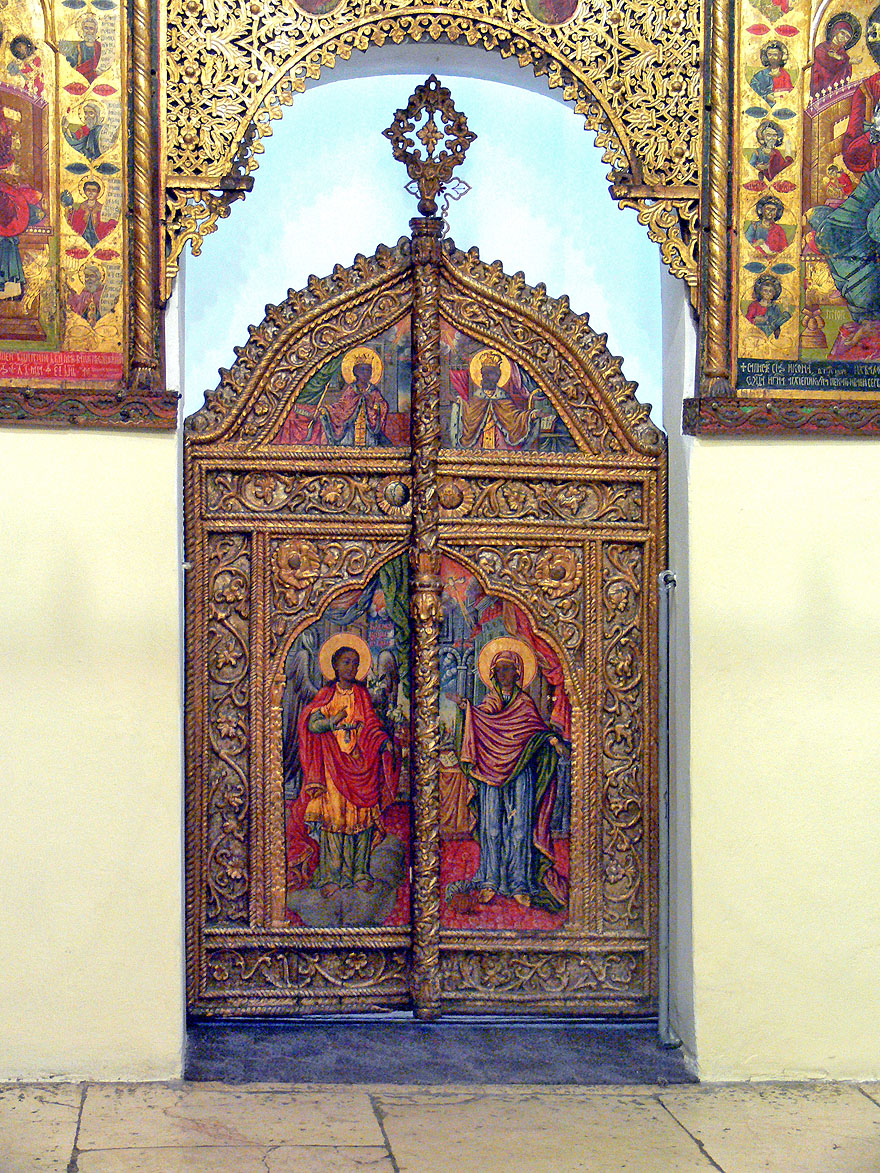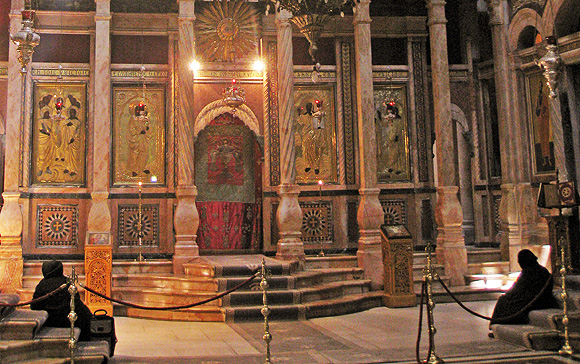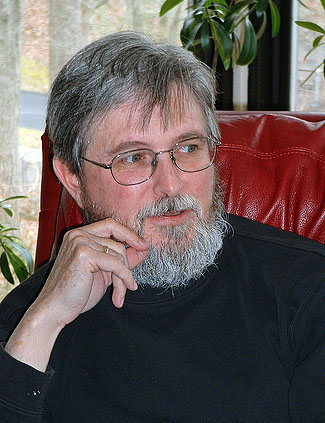The doors and God
20 November 2016You cannot attend an Orthodox service and not be aware of doors. There are the doors that form the center of the icon screen, opening directly upon the altar. There are the two doors that flank them, one on either side, known as the “Deacon Doors.” Someone always seems to be coming out of one and going into another. One visitor to my parish confessed that the service reminded her of a “cuckoo clock.”
“The door opens. Someone comes out and says something and goes back in again.”
I have to admit that I have never been able to rid my mind of her description. Doors are important things, even within the Scriptures. Their place in the liturgical life of the Church is important for all of the same reasons.
Doors hide things. “Behind locked doors,” has an almost ominous sound to it. They were clearly invented in the course of human history to keep animals, people and pests outside.
But doors also reveal things.
After these things I looked, and behold, a door standing open in heaven. And the first voice which I heard was like a trumpet speaking with me, saying, “Come up here, and I will show you things which must take place after this.” (Rev 4:1)
Indeed, one of the characteristics of revelation is that something must first be hidden in order to be revealed. That which always stands naked, open and available does not serve for revelation.
It is this character of hidden-and-revealed that serves as one of the main currents in the drama of Orthodox liturgy. The Christian faith is apocalyptic – it has always the character of that-which-is-revealed. Though we may employ reason in the consideration of the faith, we are nowhere promised that this is the true manner of coming to know what God has given to us. Instead, our faith is that-which-has-been-made-known. It is the revelation (apokalypsis) of that which is hidden (the mysterion).
I personally think that there is something within the human that is particularly attuned to revelation. We describe the experience by saying, “A light came on,” or “The coin dropped.” The movement between ignorance and knowledge in such situations is not a path. It is sudden and even jarring. We see when shortly before we were blind. I would suggest that the knowledge acquired in such a manner differs qualitatively from knowledge gained in other ways.
It is the instinct for such knowledge and experience that creates the theme of “the doors” in Orthodox worship. Some find the doors somewhat daunting and exclusionary. They announce, “You cannot go here!” a sentiment utterly contrary to our modern democratic sensibilities. But the exclusionary aspect of the doors always exists not to hide but to reveal. That which is closed will be opened – but the opening requires that they first be closed.
The universe presents itself as a closed door. As soon as we intuit structure and order, our efforts to make sense of things are rebuffed. The mystery of knowledge is not the perception of the obvious.
Charles Townes, Nobel Laureate and father of laser technology, self-described Protestant Christian, once observed:
“Understanding the order of the universe and understanding the purpose in the universe are not identical, but they are not very far apart.”
His own breakthrough invention of the “Maser” (using microwaves rather than light), came to him while sitting on a park bench. Work and study preceded it, but the idea itself came as an “Aha! moment” in his words. It is not unlike Archimedes famous cry of “Eureka!” (“I have found it?”).
Such moments do not come like the sum at the end of a math problem – they are rather like the dawning realization of how the math problem is to be done. It is knowledge of a different sort. And, unlike the sums, such moments are frequently life-changing. They are perceptions that change how we see things. A door that was closed has now been opened.
Doors also permit or restrict movement. St. Mary of Egypt’s famous conversion occurred in the experience of a doorway that would not yield to her sin. Entering can mean nothing if its refusal is not also a possibility. There is a hymn from Great Lent, sung first on the Sunday of the Publican and the Pharisee:
Open to me the gates of repentance, O Giver of Life,
For my spirit rises early to pray towards thy holy temple,
bearing the temple of my body all defiled;
But in Thy compassion, purify me by the loving kindness of Thy mercy.
There is the thought within the Church that there must be a “place of repentance,” an opportunity that is never just a “given.” In our lives we can sometimes experience such catastrophic consequences in our actions that we cannot undo the harm we have done. No amount of asking forgiveness can make things right. It is among the most devastating places that anyone can reach. It’s for that reason that we pray for the gates or doors of repentance to be opened to us – that we might find a place and not be swept away in the tidal wave of our own destructive actions.
Most joyful, however, is the greatest entrance allowed by the doors – the entrance of God into our world and into our lives. It represents the deepest longing of the human heart: the return of the King and the restoration of all things.
Lift up your heads, O you gates! And be lifted up, you everlasting doors! And the King of glory shall come in. Who is this King of glory? The LORD strong and mighty, The LORD mighty in battle. Lift up your heads, O you gates! Lift up, you everlasting doors! And the King of glory shall come in. Who is this King of glory? The LORD of hosts, He is the King of glory. (Psa 24:7-10)
Perhaps the greatest moment in the Divine Liturgy comes when the Royal Doors open before the altar and the priest comes forth, carrying the Body and Blood of Christ with the words: “In the fear of God, and with faith, draw near!” It is the invitation to communion, a profound proclamation that our sins have been forgiven and that our union with God is at hand.
Such liturgical moments are profoundly true. The drama within the liturgy itself is made to serve the spiritual reality of the event. What they await is the corresponding movement within the human heart. Words alone are often not enough to open the door of the human heart itself. The dramatic portrayal adds yet one more plea from God in His invitation of love. Sadly, our hearts sometimes remain unmoved and the gates remain shut. It has always struck me as the greatest spiritual irony that the most recalcitrant locks that we encounter are those on the outside of the gates of paradise, those that insist to God that He remain beyond our world behind gates we have barred against Him. And there on the outside, we can rant and rage against all the injustice of our world and all that God has not done for us – or simply go about our business as though there were no paradise beyond those doors waiting to come forth.
Source: glory2godforallthings









